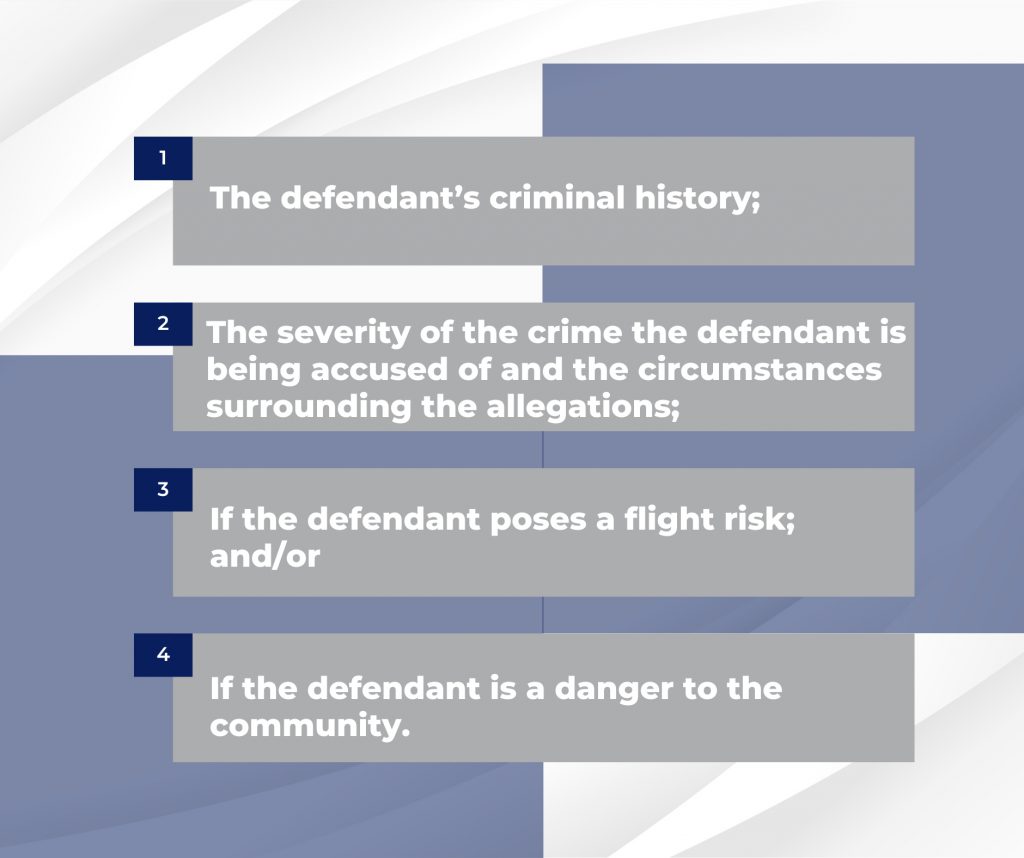4th Nov 2024

If you are accused of a crime in Michigan, it is important to understand bail and how it works in Michigan. This court practice is designed to presume that the defendant is innocent while the defendant awaits trial. Being well informed will help you navigate this criminal process.
What is bail?
Bail is a sum of money set by a judge or magistrate, that an individual who is accused of a crime must pay to the court if they want to be temporarily released from jail while they wait for their trial date. Bail is not considered to be a punishment or a fine but acts as insurance between the defendant and the court to ensure that the defendant will return for their set court date. Any individual can pay or “post” the bail on behalf of the defendant. Typically, bail will be returned to the defendant when the trial is over unless the defendant failed to appear for any court appointed date, then the money is forfeited. If the defendant is denied bail at their bail hearing, then they remain in jail until their next court appearance or even trial.
What is the difference between bail and bond?
It is common to hear bail and bond be used interchangeably; however, they are different because of who pays them. Bail is typically paid by the defendant or a family member directly to the court while bond is paid by a bail bondsman company. A bond is an agreement between the defendant, court, and a bail bondsman company where the defendant pays a small percentage of the total amount of the bail to a bondsman and then the bondsman pays the majority of the bail to the court.
How is the bail amount determined?
In some jurisdictions, there are non-negotiable preset bail amounts and schedules for common criminal offenses. A bail hearing is usually set within 24-48 hours of being arrested, and the bail amount is typically determined by a few of the following factors:

What are the different bail options in Michigan?
The following are a few different types of bail options in Michigan that are available to defendants:
Cash Bail
This is the most straightforward option. The defendant, or a family member, pays the full bail amount in cash. Some courts may allow it to be paid by credit card, but it is generally paid with a check. If the defendant appears at every required court appointed appearance, then the bail amount will be returned at the end of trial, minus fees, and/or court fines. If the defendant fails to appear for any court date, then the bail money is forfeited.
Surety Bond
If the bail amount is too much for the defendant to pay, then they might choose to work with a bail bond agent. Typically, the defendant pays 10% of the bail and the agent would pay the remaining amount. However, the bond agent typically will also require the defendant to put up some form of collateral.
Property Bond
In some circumstances, if bail is set at a high price, the defendant can put up a piece of property (i.e. their home) as collateral. In this situation, the court will put a lien on the property. If the defendant fails to appear at any court appointed appearance, then the court may seize the property.
PR Bond
A PR Bond, Personal Recognizance Bond, is a document that you sign promising to appear at all court appointed appearances. This type of bond does not require any money to be paid. A defendant can typically live their normal life without any restrictions with this type of bond, but they may not be permitted to leave the state. This is typically only available to defendants who have committed a non-violent crime and do not have a criminal history. If the defendant fails to show up for any court appointed appearance, the court will revoke this bond, and the defendant may be required to pay the money.
It would be wise to seek legal counsel after being arrested for a crime so a qualified criminal defense attorney can walk you through this complicated process and help obtain the appropriate bail amount.
Written by Beier Howlett
Related Articles


